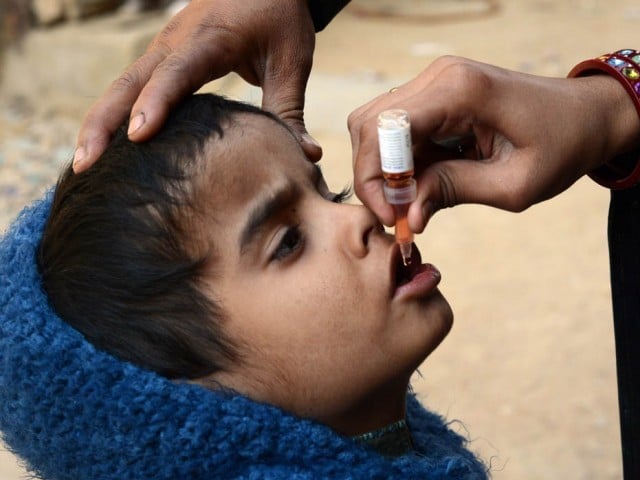
With steely determination in his tone, Peshawar DC Riaz Mehsud stated the district administration would leave no stone unturned to eliminate polio and bring vaccination refusal cases down to zero.
Mehsud said he held a jirga with elders of Adezai, Mattani and Badhaber villages and managed to convince over 120 families present at the Badhaber police station to immunise their children against the crippling disease.
He said the district government utilised all its resources and held meetings with locals in a bid to stem the rising tide of polio cases. Mehsud added he was willing to take on all challenges and hoped all parents would be willing to let their children take polio drops in the near future.
Dealing with the dissidents
“We are trying to convince people through jirgas and even appealing to parents,” Mehsud told The Express Tribune. “However, if that does not work, we will not hesitate to take the refusing families to task and charge them under the relevant sections of the law,” he warned.

He said the jirga was a continuation of the district administration’s strategy to eradicate poliovirus from the area. He added people refusing drops for their children were arrested and put behind bars under Section 3 of the Maintenance of Public Order (MPO). The DC said these actions have reduced refusal cases to some extent.
However, Mehsud admitted some people were still reluctant. He revealed the district government visited some highly sensitive areas where refusals were reported from.
A health official who was present at the jirga said villagers informed Mehsud of their concerns.
“Some said the vaccine reduced reproductive strength, whereas others highlighted religious constraints,” the official said. He added the district commissioner took note of all their concerns. After detailed discussions, the DC produced a fatwa issued by the Mufti-e-Azam of Saudi Arabia and the families agreed to inoculate their kids.
Doctors termed the concerns of some parents baseless, while the DC also administered polio drops to children present on the occasion.
Stumbling blocks
Some polio teams refused to carry out vaccination campaigns in sensitive union councils of Peshawar district and complained their arrears had not been cleared by the health department. “The teams say their dues for the last two rounds of vaccination drives were yet to be paid,” shared a health official. The workers also highlighted that a medical officer was usually deputed as the Union Council Polio Eradication Campaign (UPEC) chairman. However, vaccinators said medical technicians were performing duties as UPEC chairmen in two union councils.
“We (vaccinators) are paid Rs1,150 for five days, but security is provided for just two days,” an official said while quoting a letter addressed to the health department.
The number of refusal cases was over 23,000 during the recent three-day campaign. However, it was reduced to 8,000 in a follow-up campaign in Peshawar district. So far, three polio patients have been confirmed in the district in 2015 whereas the total number of poliovirus cases from the area stood at 28 last year.
Published in The Express Tribune, March 14th, 2015.













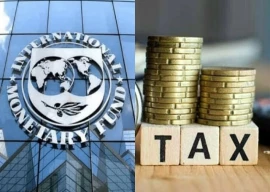


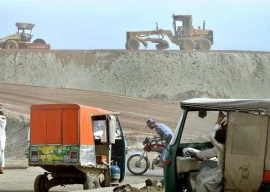

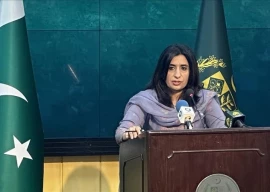



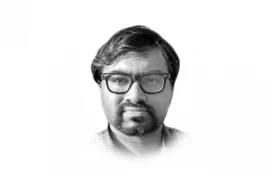

COMMENTS
Comments are moderated and generally will be posted if they are on-topic and not abusive.
For more information, please see our Comments FAQ